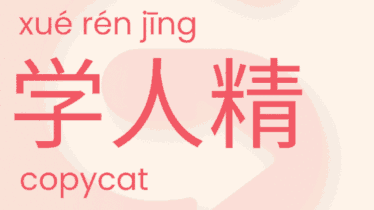How to say goodnight in Chinese
“Goodnight” is a phrase we use daily in our lives, and it would be nice if we could express our feelings more with an additional word in Chinese. This article introduces common Chinese phrases used to say goodnight in Chinese. It provides explanations by applying them to everyday situations as much as possible, so I hope it can be helpful and serve as a reference.
How to say goodnight in Chinese?
Goodnight in Chinese is commonly expressed as “晚安” (wǎn ān). It is a basic phrase that can be used in any situation when you want to say “good night.”
Other ways to say goodnight in Chinese
I’m going to sleep first.” 我先睡了 (wǒ xiān shuì le)
This phrase can be used when you feel sleepier than the person you’re with. If it’s with family or friends, you can simply say “先睡了” (xiān shuì le) without the “我” (wǒ). Similar to Japanese, just saying “I’m going to sleep first” conveys the meaning of “good night,” so if you have a close relationship, this phrase alone can serve as a goodnight greeting.
“I’m sleepy, need to sleep.” 我困了,要睡觉了 (wǒ kùnle, yào shuìjiàole)
“I’m sleepy, going to sleep first.” 我困了,先睡了 (wǒ kùn le, xiān shuì le)
“I’m sleepy, need to sleep” or “I’m sleepy, going to sleep first” are commonly used phrases when chatting or having conversations with others before going to bed and feeling sleepier than the rest.
Ways to say “sweet dreams” in Chinese
“Have sweet dreams.”
好梦
(hǎomèng)
While not used as frequently in Chinese as in Japanese, this phrase can still be used to add a touch of warmth when saying goodbye. It conveys the meaning of “have good dreams.”
“Have sweet dreams.”
做个好梦
(zuò ge hǎo mèng)
This phrase has the same meaning as “好梦” (hǎomèng), but the addition of “做” (zuò) meaning “to make” gives it the sense of “making dreams” or “create good dreams.” It conveys the message of “have good dreams.”
“Go to bed early” in Mandarin Chinese
“Please have a good night’s sleep.” 好好儿睡吧 (hǎohǎo er shuì ba)
When someone has been working hard or feeling tired, saying this phrase conveys a sense of care and consideration. In Japanese, we often say something similar like “You’ve worked hard today, so please get a good rest.” It’s a phrase that conveys heartfelt feelings.
“Go to bed early.” 早点睡 (zǎodiǎn shuì)
This is a phrase commonly used by parents to tell their children to go to bed early.
How to use Mandarin Chinese When you need to wrap up the conversation
“It’s time for me to go.”
我该走了
(wǒ gāi zǒu le)
This phrase can be used when you’re at a company gathering or hanging out with friends and you want to leave earlier. There are various reasons why you might want to leave early, such as having family waiting at home or needing to catch the last train. By using this phrase, you can politely and smoothly convey your intention to leave to the remaining people, making it a handy phrase for professionals to remember.
“Let’s end the chat here for today.”
夜聊结束
(yè liáo jié shù)
While not commonly used in verbal conversations, this phrase can be used when you want to wrap up a conversation on social media or chat platforms.
“It’s already late, isn’t it?”
已经太晚了
(yǐjīng tài wǎnle)
This expression is commonly used in both Chinese and Japanese when you want to wrap up a conversation. Similar to the Japanese equivalent, it gives a natural cue for everyone to start leaving or wrapping up the interaction.
“I have to wake up early tomorrow.”
明天要早点起床
(míngtiān yào zǎodiǎn qǐchuáng)
Similar to the Japanese phrase when you’re hanging out with friends and you have plans the next day, you might say something like, “I have to wake up early tomorrow.” It conveys a similar nuance.
“Let’s call it a night. Goodnight!”
今天就这样吧,晚安!
(jīntiān jiù zhèyàng ba, wǎn’ān)
This phrase can be used when the conversation has gone on longer than expected and it’s getting late. “就这样吧” means “Let’s end it here,” similar to how you would end a phone call. It’s a versatile expression that can be useful in various situations.
How to use Chinese Mandarin to say “goodnight” between lovers?
“Goodnight, my dear♡”
亲爱的,晚安
(Qīn’ài de, wǎn’ān)
When it comes to expressing “goodnight” to a romantic partner or someone close, adding “亲爱的” (qīn’ài de) before “晚安” (wǎn’ān) gives it a similar meaning to “Goodnight, darling” or “Goodnight, honey.” It can be used by both men and women to address their partners. I’m sure the recipient would feel a flutter of excitement upon hearing it.
Don’t miss out on expanding your knowledge – visit our Chinese learning resource page!
Immerse yourself in an unforgettable learning experience! – Book a Trial Chinese Learning Class




